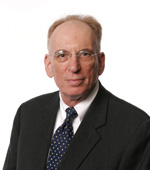On Thursday, March 20, 2014, a lively audience filled the Kaye Playhouse at Hunter College to discuss Mayor John V. Lindsay. The occasion was the publishing of Summer in the City, John Lindsay, New York and the American Dream, edited by Hunter College Professor Joseph P. Viteritti. The audience came to hear two star-studded panels, the first moderated by Sam Roberts of the New York Times with Richard Ravitch, Lilliam Barrios-Paoli and Vincent Cannato. The second moderated by Errol Louis of NY1 and featuring former close Lindsay aides, Sid Davidoff, Ronnie Eldridge, Peter Goldmark and Jay Kriegel. The audience was not disappointed.
The first panel soberly looked for meaning in Lindsay’s two terms. The first term had begun with massive hopes for an urban resurgence, but suffered with a transit strike, the Ocean Hill-Brownsville school decentralization fight and the Queens snow removal snafu. The second term had to deal with a Richard Nixon presidency hostile to Lindsay’s urban agenda and the due bills from overenthusiastic programs of welfare, city services and unsustainable borrowing.
The most outspoken on the first panel was Vincent Cannato, author of a critical biography of Lindsay who, in sum, said that virtually nothing improved under Lindsay. Richard Ravitch respectfully disagreed, but even he could not fully defend Lindsay.
When its turn came, the second panel nearly ran onto the stage. Moderator Errol Louis opened by saying that there had been much groaning by his panel as they listened to the first panel’s tepid evaluation. As the second panel retold their stories, anecdotes and evaluations based on close contact, the listeners suddenly remembered why Lindsay was so charismatic. His people were young, idealistic, innovative, courageous, astute and funny. They came to City Hall in January 1966 in the middle of the decade’s social and civil rights revolution, Vietnam resistance and the demise of Tammany governance. Lindsay’s team was on its own. It had to build a post-suburban, post-rust-belt, post-Tammany livable city. As Lindsay said in a film clip shown after the first panel, there were mistakes, but the energy and idealism, and results, had been just as real.
The second panel lifted the pall cast by the first panel. Lindsay was redeemed. Read the book, urged Prof. Viteritti to the doubters in his opening remarks. Lindsay, who had a flair for the dramatic, would have enjoyed the drama.
Ross Sandler


